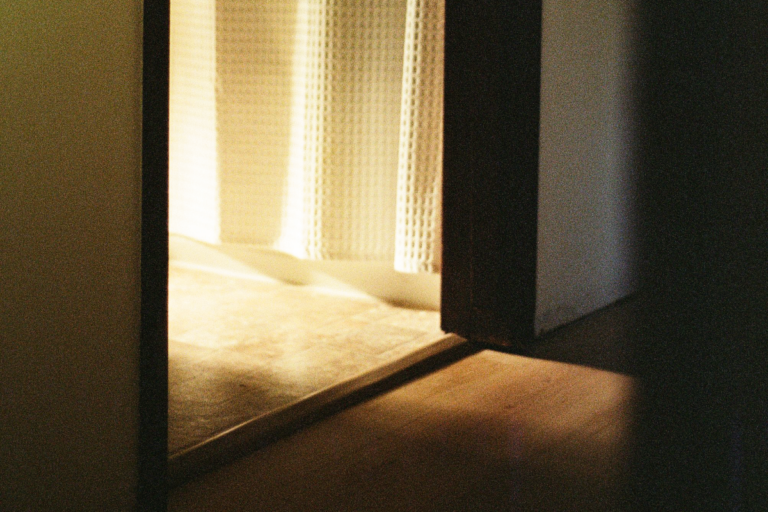
Image by Ryan Seyeau/Flickr, Attribution-NonCommercial-NoDerivs.
The Shocking Clarity of Almost Losing It All
I made sure that Maya, just three months old, was asleep in the Pack n’ Play, and pulled John, my husband, up off the floor of the bathroom. He was conscious, but disintegrating, weak and feeling numbness in one of his arms, weepy and scared about what was happening to him.
I dragged him down the stairs of the quaint Vermont bed and breakfast, hoping we weren’t waking others up in the process, and pushed the front door open to a welcoming shock of cold air. Stars were blinking in the midnight sky. Snow covered the ground. John knelt into it. I knelt beside him. “Breathe, babe, breathe,” I said to him, little puffs accompanying each word.
He tried, but it was pretty useless. He was hopelessly dizzy and on the brink of throwing up again. “I think we need to get you to the emergency room,” I said. He nodded noiselessly.
After I got Maya bundled up and in the car seat, we did go to the emergency room on that frigid night. It was mercilessly bucolic — friendly in-take people, no wait at all, even a volunteer who was clearly told to go give a hug to the young-looking mom with the baby and the sick husband. After running a bunch of tests they decided that John had a severe case of vertigo. No heart attack, as they had first surmised.
All of that was pretty memorable. But what I remember the most vividly is this: later that day, I was driving the rental car down some minor highway, the snow surrounding us still, a house here and there, both John and Maya asleep, and I felt a soaring sense of euphoria. Not a hallucinogenic euphoria. It was an earthly euphoria, one of the most grounded feelings, in fact, that I can ever remember having.
This is my person. This is my baby. They are both safe, sleeping. This is the snow. These are my strong hands on the steering wheel. This is my life. This is all there is. And it is so fragile. And beyond enough.
I was reminded of this moment recently when a group of friends and I were discussing what it takes to be in touch with the “big picture” in the midst of our frenetic, modern lives.
One friend’s husband woke up one day with a tumor the size of an eggplant in his back. They had just had their first child. She said that the days between when she first ran her fingers over the foreign object, taken up residence in the most familiar body to her besides her own, and the moment when the doctors removed it and found it to be — to their shock — non-malignant, were the most loving days of their lives. They gazed at one another with a visceral sense of how precious and un-promised their love really was.
It’s been a year and another baby since then. “Can you still touch into that feeling?” someone asked her.
She slowly shook her head. “Every once in awhile, but it’s rare,” she admitted.
It’s true for me, too. That night in the emergency room was like a super boost of clarity, of reverence for our precarity, of gratitude, and yet, it faded rapidly. Within days I was preoccupied with getting the tags for the car seat at the airport gate and irritated with John for who knows what small, insignificant thing. Like snow, perspective melts faster than you might think.
One fundamental paradox of the human condition is this: we crave the capacity to know what really matters so much and yet we fear the very thing — loss or the threat of loss — that grows that knowing. And what’s more, loss is inevitable, so our efforts to control conditions such that we don’t have to experience it are ultimately futile. Vertigo descends. Tumors the size of eggplants show up. Fires take young artists and activists, promising as hell.
It is these moments that we fear, these moments that are inevitable, that put us in touch with a proportionate sense of gratitude for just how lucky we are to live on this earth for even one day.
I’m not claiming that’s any consolation for the suffering — particularly for those who don’t get the comparatively gentle perspective borne of close calls, but the brutal realization of disease and death. I’m just acutely aware of how much more accurately we weigh our own small lives when we touch into just how vast and inevitable loss really is. Time slows down. Our senses are empowered. The sound of a peacefully sleeping person that you love becomes what it really is, the most sacred sound in the entire universe.


Share your reflection